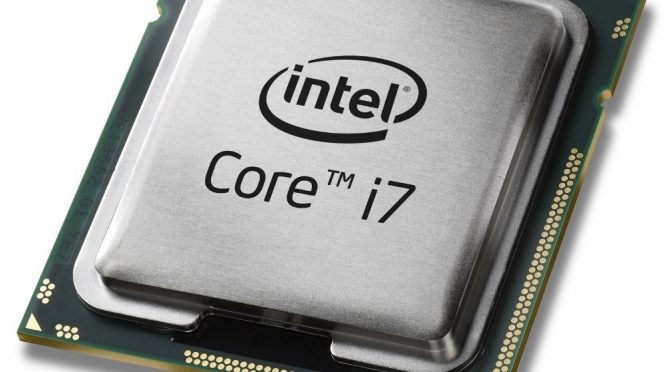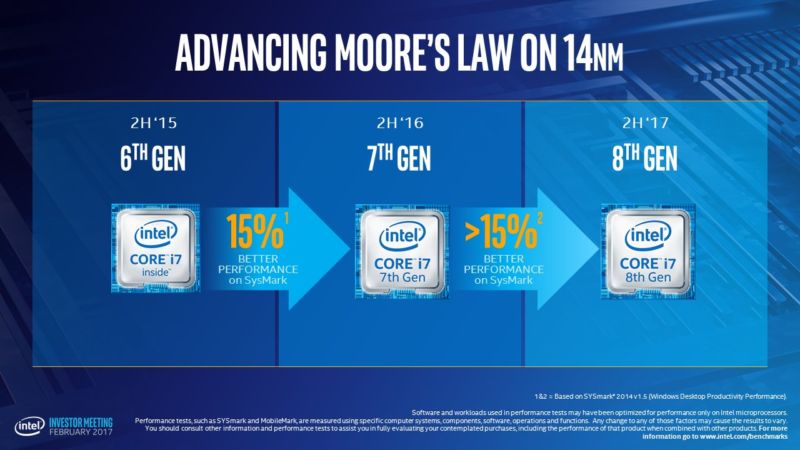Intel plans to released the eighth generation of its Core i7 CPUs, based on Coffee Lake, in the second half of 2017 and according to the latest rumours, the mainstream chips will feature more CPU cores than their predecessors. French website CPCHardware has shared some details about two Core i7 and two Core i5 models.
Naturally, take everything you are about to read with a grain of salt. According to CPCHardware, the Intel Core i5 8400 will feature 6 CPU cores and 9MB of L3 Cache, won’t support Hyper Threading, will be clocked at 2.8Ghz, and its TDP will not be exceeding (theoretically) 65W. On the other hand, the Intel Core i5 8600K will also feature 6 CPU cores and 9MB of L3 Cache, won’t support Hyper-Threading, will be clocked at 3.6Ghz and its TDP will be at 95W.
Regarding the Core i7 CPUs, CPCHardware revealed two models: Intel Core i7 8700K and Intel Core i7 8700. The only difference between them is that the non-K version will be clocked at a lower frequency (Core i7 8700K is reported to be clocked at 3.6Ghz whereas the non-K version will be clocked at 3.2Ghz). Apart from that, they feature the exact same features. Both of them come with 6 CPU cores and 12MB of L3 Cache, support Hyper-Threading, and offer a TDP of 95W.
What’s also interesting here is that according to CPCHardware, this CPUs will be compatible with the LGA 1151 socket, meaning that those already owning these mainstream motherboards will be able to upgrade to the newest CPUs without any issues. All they will need is a bios update that will add compatibility to these new CPUs, so here is hoping that the motherboard manufacturers will not drop the ball.
According to Intel’s roadmap, these new Coffee Lake CPUs are planned for release in the second half of 2017. We expect the Laptop versions to be the first ones available to the public, with the Desktop versions following at a later date. As such, the Desktop versions of Coffee Lake may slip to 2018.
John is the founder and Editor in Chief at DSOGaming. He is a PC gaming fan and highly supports the modding and indie communities. Before creating DSOGaming, John worked on numerous gaming websites. While he is a die-hard PC gamer, his gaming roots can be found on consoles. John loved – and still does – the 16-bit consoles, and considers SNES to be one of the best consoles. Still, the PC platform won him over consoles. That was mainly due to 3DFX and its iconic dedicated 3D accelerator graphics card, Voodoo 2. John has also written a higher degree thesis on the “The Evolution of PC graphics cards.”
Contact: Email


